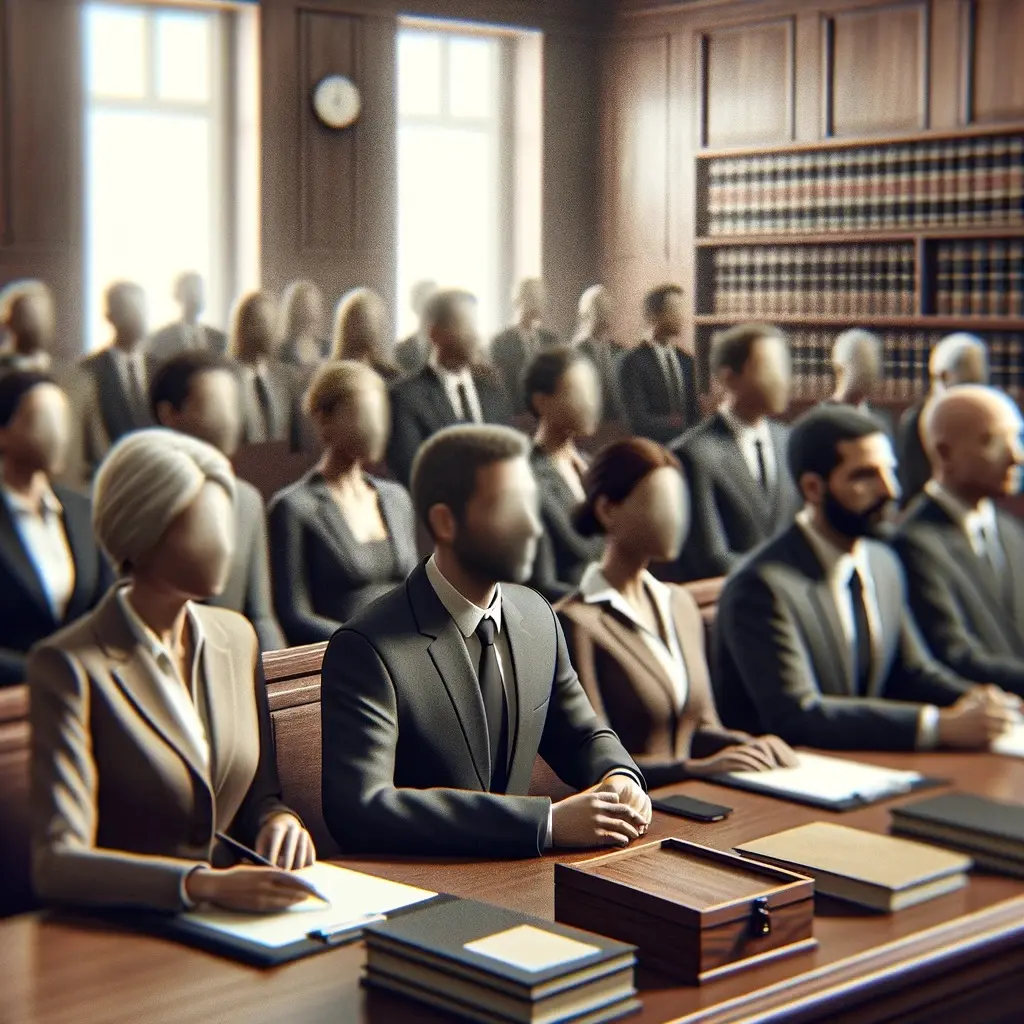The Crucial Role of Anonymous Juries in the Justice System
In high-profile legal cases where the potential for external influence or juror harassment exists, the concept of anonymous juries has become a critical protective measure. This deep-dive article explores the facets of anonymous juries, their necessity, and the mechanisms that govern their use in the justice system, ensuring a fair trial while safeguarding the privacy and safety of jurors.
The Concept and Justification of Anonymous Juries
Anonymous juries are used in trials where there is a significant concern for the safety of the jurors, potential for bribery, or undue influence from external sources. The identities of jurors are kept secret from the public and sometimes even from the defense and prosecution. This practice ensures that the jury can deliberate without fear of retribution, external pressure, or societal influence.
Historical Perspectives and Modern-Day Application
The use of anonymous juries began in the United States during the late 20th century, primarily in cases involving organized crime, where the risk to jurors was palpably high. Since then, the application has expanded to include trials involving terrorism, gang violence, and high-stakes corporate litigation. These measures reflect the evolving needs of the judicial system to adapt to changes in the societal landscape and the types of cases that come to trial.
Case Studies Illustrating the Impact of Anonymous Juries
One landmark case that employed an anonymous jury was the trial of notorious gang leader John Gotti in 1992. The decision to use an anonymous jury was based on Gotti’s history of tampering with jurors. The anonymity of the jury helped ensure a fair trial by preventing any potential influence or threats from reaching the jurors.
Expert Commentary on Legal and Ethical Implications
Legal experts argue that while anonymous juries serve a crucial protective function, they also raise questions about transparency and the rights of the defendant. The balance between protecting jurors and upholding a transparent legal process is a delicate one, requiring careful consideration on a case-by-case basis.
Comparative Analysis Across Jurisdictions
Different jurisdictions have varying standards and practices when it comes to implementing anonymous juries. In some countries, the use of such juries is rare or non-existent due to differing legal frameworks and cultural attitudes towards judicial transparency and privacy.
Detailed Breakdown of Procedures for Implementing Anonymous Juries
The decision to use an anonymous jury typically involves several key steps:
- Assessment of Risk: Judges must assess the level of risk to the jurors’ safety.
- Legal Motions: Both the defense and prosecution can file motions for or against the use of an anonymous jury.
- Judicial Approval: A judge must approve the use of anonymity, often after considering the potential threats to jurors.
Technological Enhancements in Juror Anonymity
With advances in technology, courts can better protect juror details while maintaining essential court records. Digital redaction tools, secure databases, and enhanced courtroom security measures are now commonplace to support the anonymity of jurors.
Interactive Elements to Educate the Public on Anonymous Juries
Legal education platforms increasingly use interactive tools to help the public understand why anonymous juries are used and how they function. These resources often include simulations and Q&A modules that provide insights into the decision-making process behind this practice.
Frequently Asked Questions About Anonymous Juries
- What circumstances warrant an anonymous jury?
- Cases involving potential juror intimidation, public and media attention, or high-risk factors typically warrant anonymity.
- Does the use of an anonymous jury influence the trial’s outcome?
- Studies and legal analyses suggest that while it may alter the trial atmosphere, the primary goal is to ensure a verdict free from undue influence.
Legislative Trends and Ethical Considerations
As legal systems continue to evolve, legislative bodies review and occasionally adjust the guidelines governing the use of anonymous juries. Ethical considerations remain at the forefront of these discussions, ensuring that the justice system remains fair yet responsive to the needs of both public safety and judicial integrity.
The implementation of anonymous juries is a testament to the complexities and challenges of modern legal proceedings. Balancing the need for juror safety with the principles of an open judicial process is paramount to upholding justice in an increasingly complex world.












